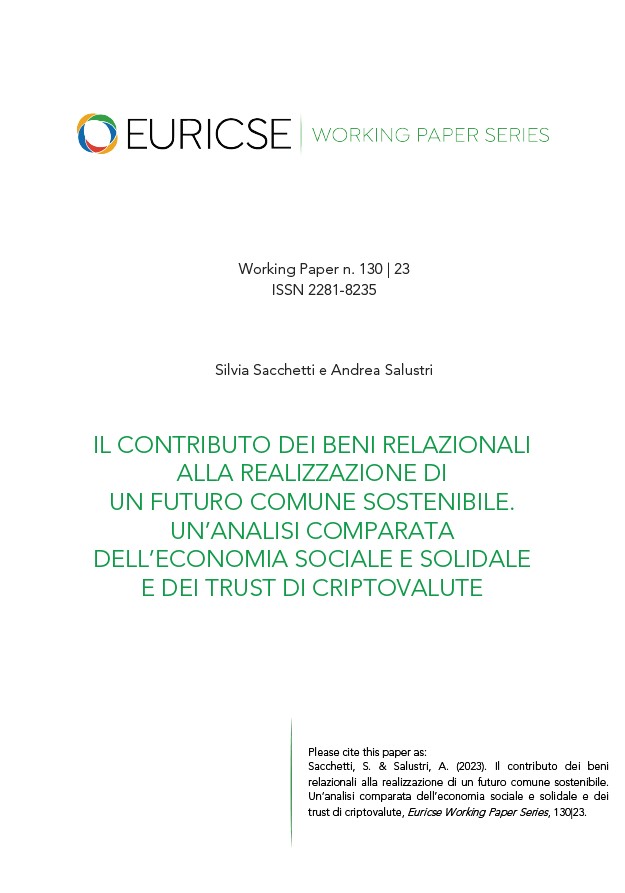WP 130 | 23 The contribution of relational goods to the achievement of a sustainable common future. A comparative analysis of the social and solidarity economy and cryptocurrency trusts.
The research addresses the theme of the production and destruction of public value by comparing the actions of the social and solidarity economy (SSE) with the recent development of cryptocurrency trusts. The theoretical approach integrates standard economic analyses with issues arising from more heterodox socioeconomic analyses, such as studies on public happiness, the human development and capabilities approach, literature on governance and inclusive preferences, and the governance of common goods. Based on these premises, a unified theoretical framework allows understanding the multifaceted nature of cooperation networks and the relational goods they implicitly generate. The developed theoretical framework also clarifies how, depending on the social and individual preferences of the actors involved in co-production and co-consumption processes, such networks may (or may not) contribute to the creation of net public value. We believe that a distinctive element influencing this outcome is the horizontal (cooperative and inclusive) or vertical (asymmetric and exclusive) nature of coordination methods. The theoretical analysis is used to compare two paradigmatic cases of cooperation: (i) the deep cooperation that animates the action of the SSE, and (ii) the superficial cooperation that makes cryptocurrency trusts efficient. Overall, the two coordination mechanisms are profoundly different and serve different purposes: pro-social through deep cooperation in the first case, speculative through price mechanisms and superficial cooperation in the second case. In addition to intrinsic value, both types of cooperation have instrumental value, potentially allowing beneficiaries to increase their consumption and achieve higher living standards, but their impact on development processes is radically different.
JEL Codes
P13; L31; L33

